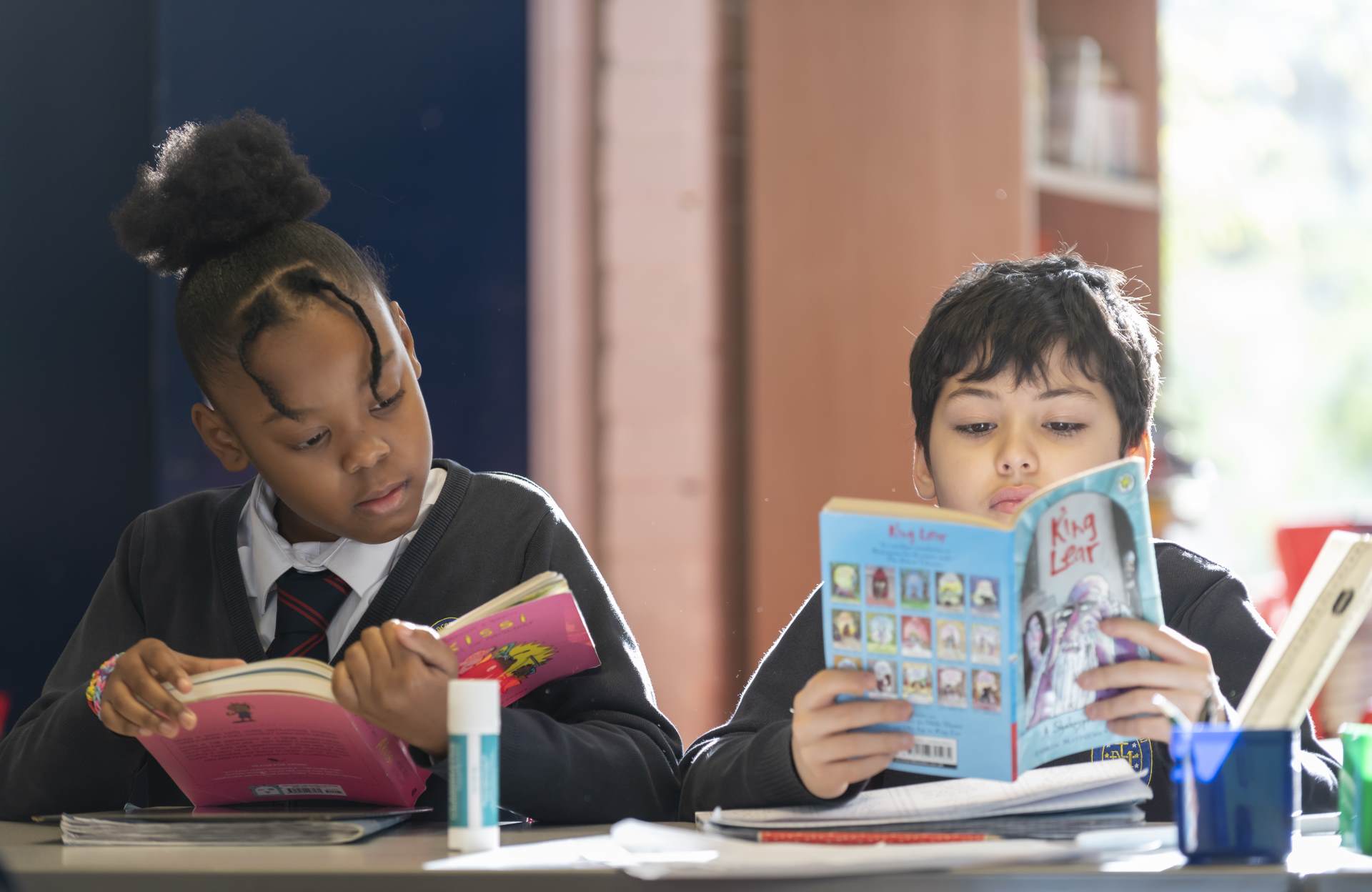Phonics & Reading
Our Approach to Reading at St Vincent de Paul
We know that it is crucial for children to develop a life-long love of reading and as such our curriculum is planned carefully to ensure that children are equipped with the tools and knowledge to be independent and curious readers when they leave St Vincent de Paul.
Our teaching of language comprehension begins in Nursery when adults talk with children about the world around them and the books, stories, rhymes, poems and songs that they read and enjoy with them. All of our classrooms have well-stocked class libraries for the children to enjoy.
Our teachers are knowledgeable about current children’s authors and share high quality books with the children through both The Literary Curriculum we teach as well as carefully chosen class books. The children see the adults at school are passionate readers and enjoy discussing their reading with them.
We celebrate books in multiple ways throughout the academic year including Scholastic Book Fairs, visits from authors and story-tellers, book swaps and a full week of events for World Book Day including opportunities to dress up as favourite characters.
Reading Scheme
At St Vincent de Paul we use the Oxford Reading Tree scheme for children from Reception class. When children are confident independent readers they become ‘free readers’. These levelled books are carefully matched to the children’s phonic ability. We ensure that the scheme is regularly updated. We share a home-school reading record to ensure that all children’s reading achievements are celebrated.
Please see this Oxford Reading Tree overview of their Reading Levels/Book Bands.
Create a free account to access Oxford Reading Tree’s e-library.
Phonics at St Vincent De Paul
We begin a structured Phonics programme in Reception using the Essential Letters and Sounds programme. Phonics is taught daily in Reception and Year 1 alongside the age-appropriate common exception words (words which do not follow phonic spelling patterns). This consistent approach to phonics enables the children to access many books and prepares them for the Phonics Test which occurs at the end of Year 1. This test is also repeated for Year 2 children who were unable to reach the pass mark. Targeted support is given to children throughout Year 2 and 3 as appropriate if required.
Please see this parent overview about Essential Letters and Sounds.



